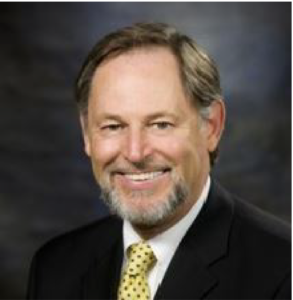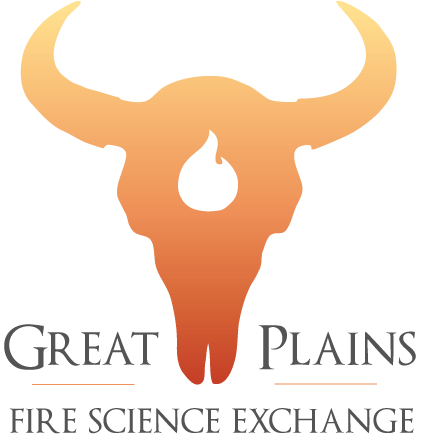Dr. David Engle
Committed. Professional. Humble. Kind. These are a few ways people have described David Engle, Regents professor in the Department of Natural Resource Ecology and Management at Oklahoma State University. These sentiments are shared not only by his immediate peers but also by professionals across the country. As a result, Engle has received the 2014 Sustained Lifetime Achievement Award from the Society of Range Management (SRM). According to SRM, this honor is given to individuals who have exhibited long-term contributions to SRM and range management. Engle’s lifetime contribution to the field began many years ago in New Mexico.
“I grew up in southeastern New Mexico,” Engle said. “I wasn’t from a farm or ranch.” Instead, Engle spent a lot of years working on farms and ranches until he began his undergraduate studies at Abilene Christian University.
“I was actually a pre-med major through my freshman year,” he said. “I realized by the end my of sophomore year that wasn’t really something that I wanted to do.” Engle said spending hours inside a lab kept him from his interest in the outdoors. Then a friend talked Engle into taking a range management course. The summer after taking the range course, Engle started working with the U.S. Forest Service on a fire crew. “One of my bosses there took me around one day,” Engle said. “I didn’t know anything about it, but he was showing me different range grasses and plants and how they responded to management. I just thought that was fascinating.”
The fire crew job, paired with the range course, led Engle to change his major to range science. He said the decision connected him to the years he worked on ranches in New Mexico. He graduated from ACU in 1972 with his degree in range science. After serving a year in the National Guard, Engle decided to pursue a graduate degree from ACU in wildlife biology, graduating in 1975. He then went on to get his doctorate in range science at Colorado State University, graduating in 1978.
Engle’s first job after graduating was as an assistant professor at South Dakota State University. He taught there for four years before moving to Oklahoma State University, where he taught and did research for nearly 25 years. In 2005, he accepted a department head position at Iowa State University, where his wife had accepted a job.
In 2008, Engle returned to OSU where he resumed teaching as a Regents professor. He also became the director of the Water Resource Center in OSU’s Division of Agricultural Sciences and Natural Resources. He currently spends half his time as director of the center and half as a professor. Engle said the function of the center is to “fund and promote research and outreach about water resources.”
Engle is known for pioneering several practices and areas of research in rangeland management. “When I came to Oklahoma, I realized there was a lot of opportunity working with fire, wildland fire and fire on rangelands,” he said. He began to study why fire was lacking on the landscape in Oklahoma, despite fire being a historical disturbance there. Engle said many people believed fire harmed the landscape. He said people are beginning to recognize fire as beneficial and necessary. “That’s something that has changed in my career,” he said. “I hope that I have contributed to that.”
Engle said he also studied ways to combat the Eastern Redcedar problem, which began encroaching upon the Oklahoma landscape in the 1980s. During that time, fire was suppressed, which led to the Redcedar problem, Engle said. Samuel Fuhlendorf, an OSU Regents professor who works with Engle, said Engle is most known for his studies on Eastern Redcedar trees. According to Fuhlendorf, Engle has been instrumental in contributing to the understanding of how fast cedars grow and how they affect other vegetation. Fuhlendorf and Engle coined the term “green glacier” as a moniker for the cedar problem. “It moves real slow,” Fuhlendorf said, “and you don’t notice it.” Engle said despite creating awareness and documentation on the Eastern Redcedar, the problem still exists and continues to proliferate. “But, at least folks know it is a problem,” Engle said. “It’s up to the next generation to try and reverse that.”
Fuhlendorf and Engle together have conducted research concerning how fire and grazing interact instead of compete with one another. “A lot of people think of it as fuel versus forage,” Fuhlendorf said. “In reality, recognizing that if you burn, and especially if you burn patches, the animals congregate on those patches. That creates heterogeneity, which creates good wildlife habitat and allows you to accumulate fuels somewhere else where you can burn later.” Fuhlendorf and Engle developed this practice in the early 2000s and have done research on different areas related to it.
Sherry Leis, a fire ecologist at Missouri State University and the coordinator of the Great Plains Fire Science Exchange, said Engle often has worked on projects for which the science had not been discovered yet. Engle advised Leis during her graduate studies in range management at OSU. “He did a project looking at the effects of fire on barbed wire,” she said. “It doesn’t seem all that important, but there were a lot of people who didn’t want to use fire because they thought it would ruin their fences. He’s interested in working on problems that have come from the management community,” Leis said.
Currently, Engle works along other Oklahoma researchers and the National Science Foundation in an effort to build a social, ecological observatory network. He said the network will be similar to the Oklahoma Mesonet, a weather observation network. The observatory network will monitor how people interact and react with vegetation growth and water use. It will allow users to see real-time ecological crop reports from areas across Oklahoma. The reports also will include people’s opinions and forecasts based on the data.
Engle said one thing he has enjoyed during his career was learning the intricacies of range management. “That’s just fascinating, all those different wrinkles,” he said. “I’ve learned that about agriculture in general, but specifically in my case, rangelands. It’s so multidimensional, you can never learn it all. It’s all just fascinating. The little parts are fascinating.” He also has enjoyed working with and learning about people. “I’ve learned that my prejudgments on why humans do things, with respect to rangelands in particular, haven’t been totally right,” Engle said.
While Engle has played a major role in progressing the field of rangeland management, he also has had an impact on mentoring students and leaders in the field. When Fuhlendorf started working at OSU in 1997, Engle became his mentor. “He told me what I should be working on without being overbearing,” Fuhlendorf said. “He let me do my own thing, but he also kept me on the right path for my career.” Fuhlendorf said Engle also does a good job of balancing teaching with research. “He’s always argued that we can’t tolerate anyone who’s not good at both,” Fuhlendorf said. “We need to have people who can weave research and teaching together and excel at both.”
Derek Scasta, an advisee of Engle and a doctorate student in rangeland ecology and management at OSU, said “Engle has developed and cultivated many of the leaders in agriculture.” Scasta said students from at least 20 states in the United States and a province in Canada have come through OSU’s fire program and under the instruction of Engle. “He’s taught me how to be a good scientist,” Scasta said, “and how to evaluate any of our studies.” Scasta said Engle also has taught him skills that are harder to define, including how to communicate, be a leader and balance life. “I would describe Dave as one of the most genuine and authentic people that you would meet,” Scasta said. “He tends to be very encouraging and positive. He works hard to help people in any way that they need help,” he added.
Leis said Engle is committed to his students’ success. “I always felt like what I was doing was important to him,” she said. “He had gotten very sick toward the end of when I was working on writing my thesis. He didn’t want me to get behind. I actually went out to his house a couple of times to work on things because he wasn’t able to come into the office. That speaks to how he values his students’ work,” Leis said.
Leis said Engle was one of the reasons she considered attending OSU. While she was interviewing for graduate positions, Engle went to see Leis’s worksite in Fort Sill, Okla. She was researching the effects of military disturbance on rangeland. “We were out in the range, and he immediately started teaching me plants and helping me learn plants,” Leis said. “I hadn’t even really committed to being a student yet. That’s something that really stuck with me and helped me make the decision to come to Oklahoma State, even though I had a couple other offers,” she added.
Leis said Engle is humble. “He doesn’t want to take credit for things that he really should,” she said. “He often works behind the scenes. He may be the inspiration or create the inspiration for people to work on certain things. That’s a really important role.”
Scasta said the Lifetime Achievement Award shows how Engle is recognized across the nation. “Everybody has respect for him,” Scasta said. “It’s not always like that.”
Engle said receiving the award from the SRM means a lot to him. “I stand among giants as I look at the other people who have won this award within the society,” he said. “I’m really humbled because I don’t think that I’m like those people.” He said receiving the award really meant one thing. “I joke because I tell people it means that I’m an old guy,” Engle said. “You don’t get that award unless you’re really old and been around for long time.”
Despite being an “old guy,” Engle said he still enjoys learning. “It’s intellectual, but it’s fun,” Engle said. “Not a lot of people can say that your life’s work has been that way. I’m really fortunate. It’s a blessing to be named to that award, but it’s more of a reflection of what I’ve enjoyed doing and how that’s paid me already.”


